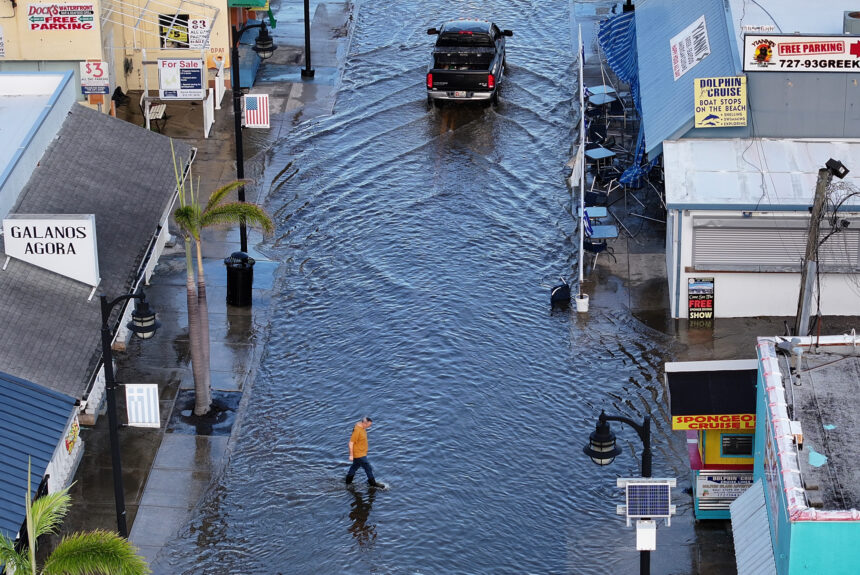Since Hurricane Katrina in 2005, no other hurricane has wreaked as much havoc to the U.S. mainland as Hurricane Helene. To date, the death toll from the Category 4 storm surpassed 225 people across six states. Areas of the Southeast were battered by 140-mile-an-hour winds, catastrophic flooding, and unpredictable landslides. Analysts estimate that the total cost of Helene’s damage could hit $30 billion. Now Florida is waiting for Hurricane Milton, a potentially more damaging storm, to hit the state. While there are many lessons to be learned about storm management and preparation, private sector innovation has remained a bright spot in the aftermath of Helene and it could save more lives in the future.
>>>READ: To Speed Up Hurricane Helene Recovery, Modernize Regulations
In western North Carolina, one of the areas hardest hit by Hurricane Helene, the Federal Communications Commission has issued temporary approval for SpaceX and T-Mobile’s direct-to-cell satellite service, Starlink. Meanwhile, the agricultural community in North Carolina is using drones traditionally reserved for the industry to rescue stranded individuals, spurred by the life-and-death situation on the ground. These technologies, which have proven to be life-saving, underscore the need to relax rigid government regulations that limit their potential.
At present, operators must obtain waivers from the Federal Aviation Administration (FAA) for each drone that takes flight. Unfortunately, the FAA has yet to implement a consistent framework for granting these waivers, resulting in prolonged and unpredictable approval timelines for new drone technologies.
The private sector has long been developing innovative solutions for disaster relief. In the aftermath of Helene, Fugro, a leading geo-data company, provided comprehensive aerial imagery for three cities significantly affected by the hurricane: Perry and Madison in Florida’s Big Bend region and Valdosta in Georgia. This advanced imaging technology has been crucial in supporting recovery efforts in these areas.
Outside of recent hurricanes, impressive progress is being made. In the robotics space, companies like Boston Dynamics are using sophisticated artificial intelligence (AI) for complex search and rescue efforts. Boston Dynamics’ AI-powered robot, Spot, can navigate highly challenging terrain to swiftly remove humans from danger following a natural disaster or other life-threatening situation.
>>>READ: Sesame Solar Wants to Change How We Power Disaster Relief
When a parking garage collapsed in Manhattan last April, Spot helped rescue the victims out after the New York Fire Department deemed the building too unsafe for firefighters to enter.
Another high-tech startup in disaster relief is Zipline, an autonomous aerial logistics company. The drone delivery service uses fully electric, battery-powered aircraft that can deliver critical supplies at ten times the speed of traditional ground delivery methods. The company has worked with customers including Panera Bread, Memorial Hermann Health System and Jet’s Pizza, delivering more than 10 million products across four continents with its zero-emissions unmanned drones. Zipline has turned its attention to spearheading medical drone deliveries in Africa and is now broadening its operations to include disaster-stricken areas around the globe.
Zipline claims to achieve over a 98 percent decrease in carbon dioxide emissions compared to using cars.
Investing in more private-sector innovation for the disaster relief industry will help save lives and minimize the harmful effects of future extreme weather events.
Nathalie Voit is a freelance content creator and a graduate of the University of Florida. She is an alumni of The Heritage Foundation’s Young Leaders Program.
The views and opinions expressed are those of the author’s and do not necessarily reflect the official policy or position of C3.
